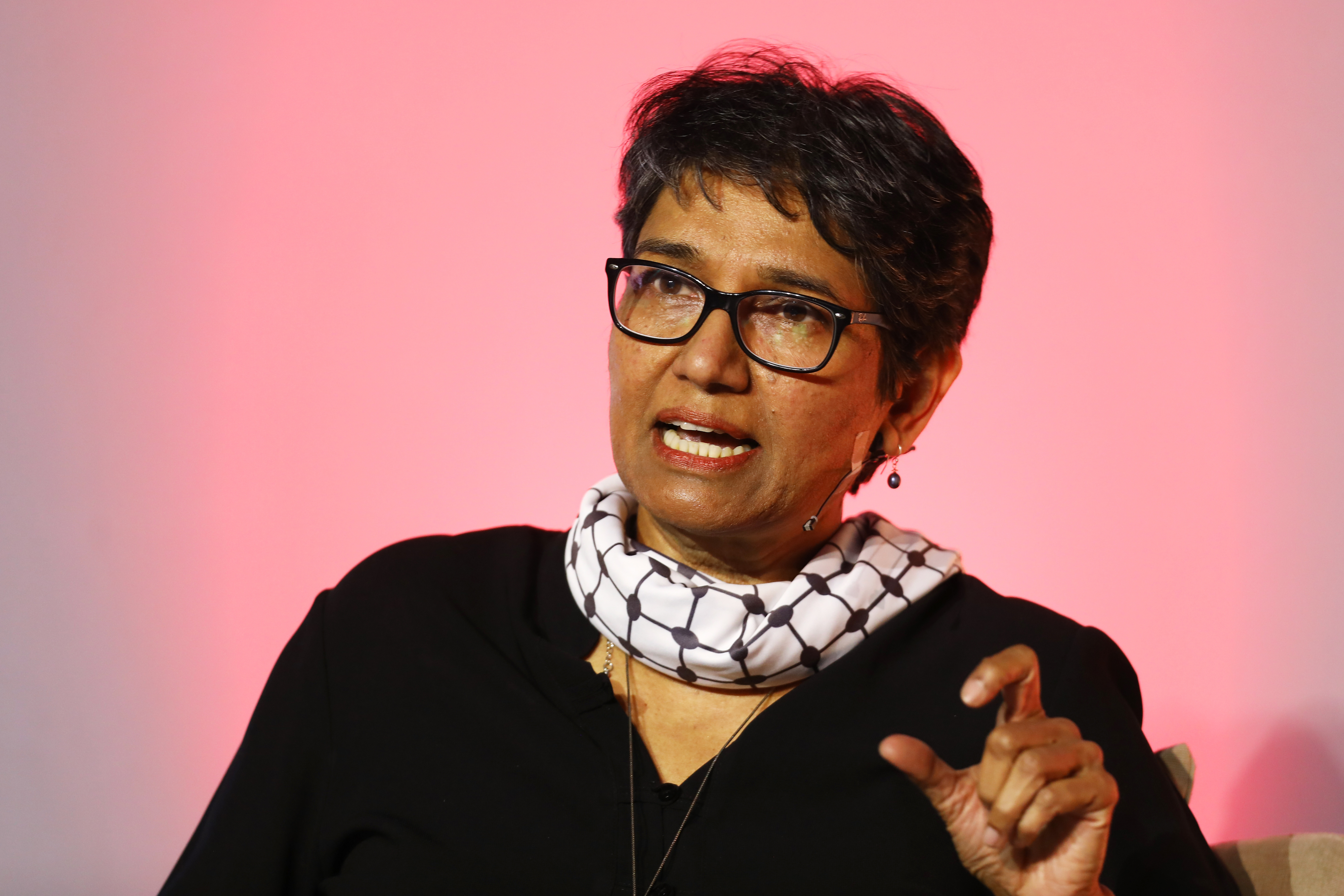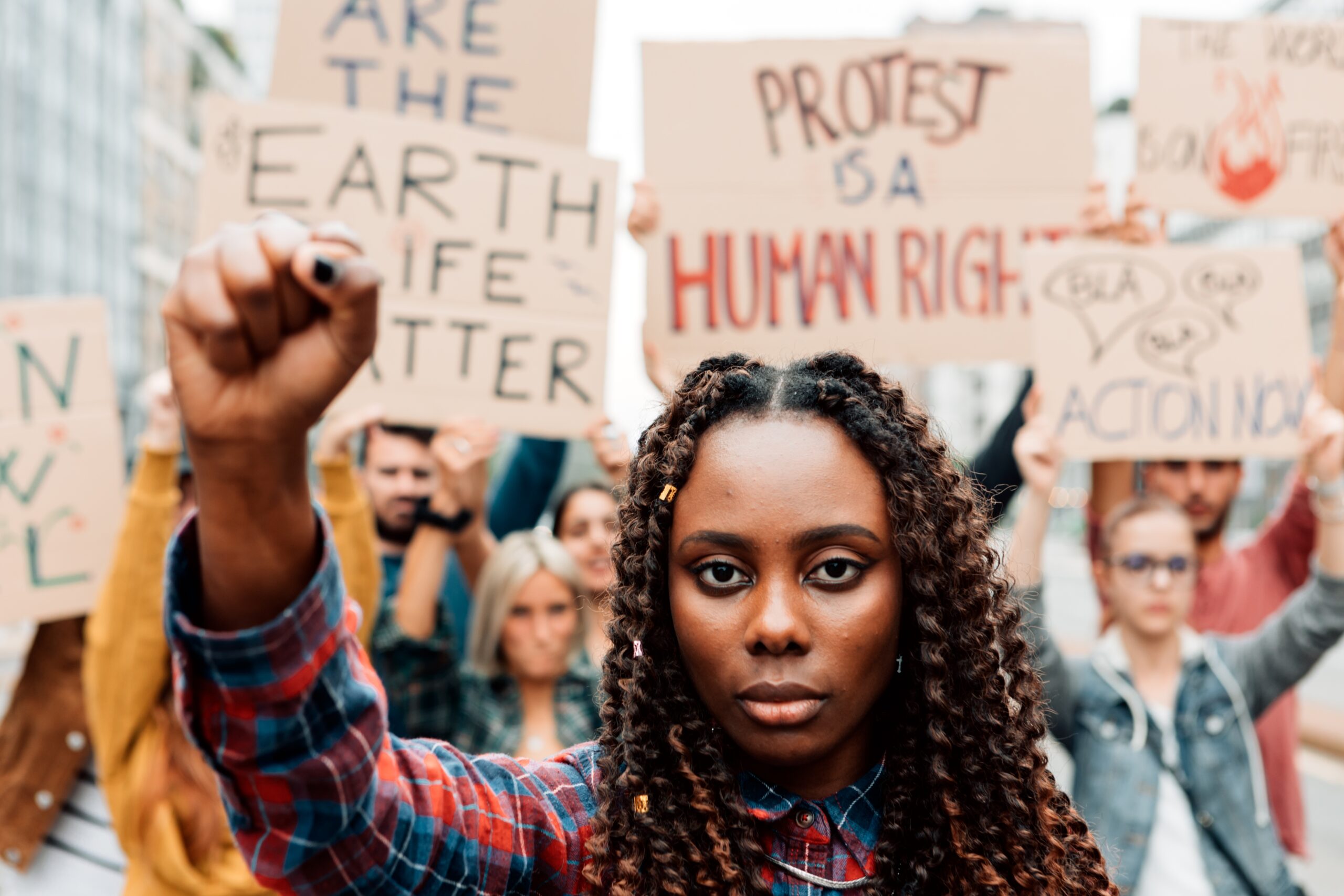In 1996, human rights activist Pregs Govender observed: “If you want to see which way a country is headed, look at the country’s budget and how it allocates resources for women and children.” This truth remains as urgent as ever during the 16 Days of Activism Against Gender-Based Violence (GBV) as gender inequality and violence thrive where resources are not used to address systemic inequities. The recently tabled Medium Term Budget Policy Statement raises concerns that South Africa may be veering off course in its commitment to gender justice.
 Human rights activist Pregs Govender in March 2024. (Photo: Shelley Christians)
Human rights activist Pregs Govender in March 2024. (Photo: Shelley Christians)
At the dawn of our democracy, South Africa emerged as a global pioneer in addressing gender inequality with the launch of the groundbreaking Women’s Budget Initiative. This effort championed gender-responsive budgeting to recognise that budgets are not gender-neutral but powerful tools to reduce inequities. Yet, 30 years into our democracy, the principles of gender-responsive budgeting have been inconsistently applied. Most striking is the omission of gender-responsive budgeting in the Medium Term Budget Policy Statement, undermining the government’s top strategic priority of fostering inclusive economic growth. To genuinely combat gender-based violence and foster equitable growth, we must go beyond lip service and fully commit to gender-responsive budgeting as a transformative tool.
The intersections of violence, inequity, and budgets
The systemic violence women endure — whether in the form of economic exclusion, unpaid care work, or direct physical harm — is deeply tied to how resources are allocated. In our op-ed last year, we reflected on how GBV thrives in contexts where social protections are weak, care work is undervalued, and poverty and inequality deepen. Tragically, South Africa’s growing inequality, rising poverty, and persistent unemployment are not just severe — they are profoundly gendered.
Through gender-responsive budgeting, we can disrupt these patterns by ensuring public funds address the root causes of inequality, including the economic precarity that traps women in cycles of poverty and violence. As the UN Committee on Economic, Social, and Cultural Rights has warned, South Africa’s austerity policies risk entrenching inequalities. For women in our society, the stakes could not be higher: austerity measures reflected in the Medium Term Budget Policy Statement reduce access to essential services, exacerbate the unpaid care burden, and indirectly intensify the conditions that perpetuate violence.
The gender-responsive budgeting imperative in times of austerity
The recently tabled Medium Term Budget Policy Statement signals a troubling real-term disinvestment in healthcare and an inadequate response to the needs of women-led households and communities. We raised concern that cuts to services such as maternal healthcare, childcare, and social protections disproportionately affect women, forcing them to absorb the shocks of austerity. This unpaid labour compounds the vulnerabilities women face, leaving them with fewer resources to escape violent situations or challenge oppressive systems.
Even worse, disinvestment in education, healthcare, and childcare limits the ability of public services to address the unique needs of survivors of GBV. This is especially significant during 16 Days of Activism, when we are reminded that combating GBV requires well resourced, survivor-centred interventions — interventions that gender-responsive budgeting can help institutionalise.
A missed opportunity
The Medium Term Budget Policy Statement represents a missed opportunity to strengthen South Africa’s fight against GBV. Gender-based violence is not just a social issue; it is an economic one. Research shows that GBV costs South Africa between R28-billion and R42-billion annually through lost economic output and the strain on public services. A budget that neglects gender-responsive budgeting fails to adequately invest in solutions to this crisis — whether through shelters, counselling services, or economic opportunities that allow women to exit abusive relationships.
Moreover, the failure to adopt gender-responsive budgeting contributes to a broader environment of injustice, where fiscal policies perpetuate the conditions that make women and girls more vulnerable to violence and exploitation. The exclusion of gender-responsive budgeting from the Medium Term Budget Policy Statement is not just a policy oversight — it is a failure to prioritise the safety and wellbeing of half the population.
Call to action
The #NoExcuses 16 Days of Activism Against Gender-Based Violence highlights that tackling violence requires challenging and transforming the economic systems that sustain it.
To build a just society, South Africa must revive its commitment to gender-responsive budgeting and embed it as a cornerstone of national fiscal policy. Firstly, this requires institutionalising gender-responsive budgeting through embedding it throughout the budget process, from planning to evaluation, to ensure fiscal decisions address gender disparities and support survivors of GBV.
Moreover, our economic decisions need to invest in care to acknowledge and reduce the unpaid care burden by funding childcare, healthcare, and social protections, freeing women to pursue economic opportunities and escape violent situations. Furthermore, by establishing independent oversight mechanisms to enforce gender-responsive budgeting commitments, backed by robust training and capacity-building within the government, our fiscal policy can ensure greater accountability in ensuring gender interventions reach intended beneficiaries. Importantly, all this must ensure that women are shaping these interventions with their specific needs foregrounded. The government can achieve this through partnering with community-based groups for women, civil society and gender equity activists to co-create gender-responsive budgeting strategies that directly address women’s lived realities.
A budget that protects all
During these 16 Days of Activism, let us remember that a budget is more than numbers on a page — it is a declaration of a country’s values and priorities. Reviving gender-responsive budgeting is not only an economic imperative; it is a moral one. It offers a path to a South Africa where resources are allocated not just equitably but justly, addressing the root causes of violence and building resilience in the face of adversity.
Gender-responsive budgeting isn’t just about fairness — it is essential for fostering a society where women and girls can live free from violence, empowered to thrive. Let the 16 Days of Activism serve as a rallying cry for South Africa to reclaim its leadership in gender equity by putting gender-responsive budgeting back on the national agenda. DM
Juhi Kasan is a feminist economics researcher at the Institute of Economic Justice, and Matshidiso Lencoasa is the budget analyst at SECTION27 and Chairperson of the Budget Justice Coalition.




 Pregs Govender at The Gathering Twenty Twenty Four Election Edition at the Cape Town International Convention Centre on 14 March 2024. (Photo: Shelley Christians)
Pregs Govender at The Gathering Twenty Twenty Four Election Edition at the Cape Town International Convention Centre on 14 March 2024. (Photo: Shelley Christians)